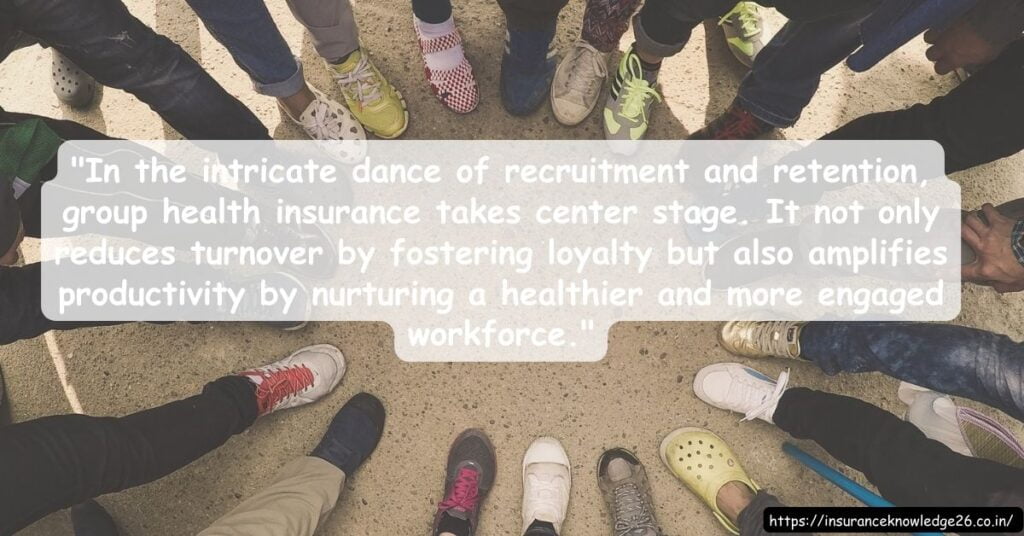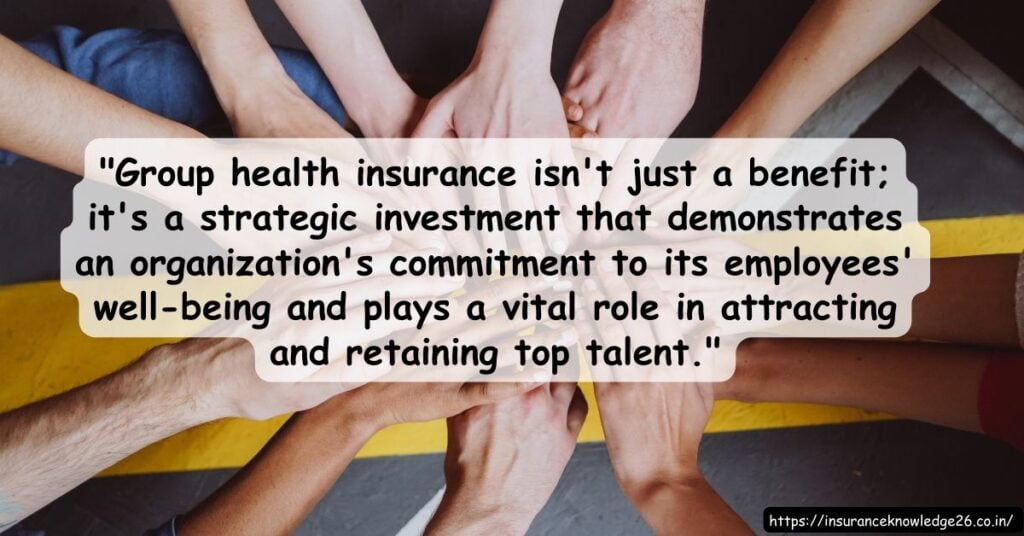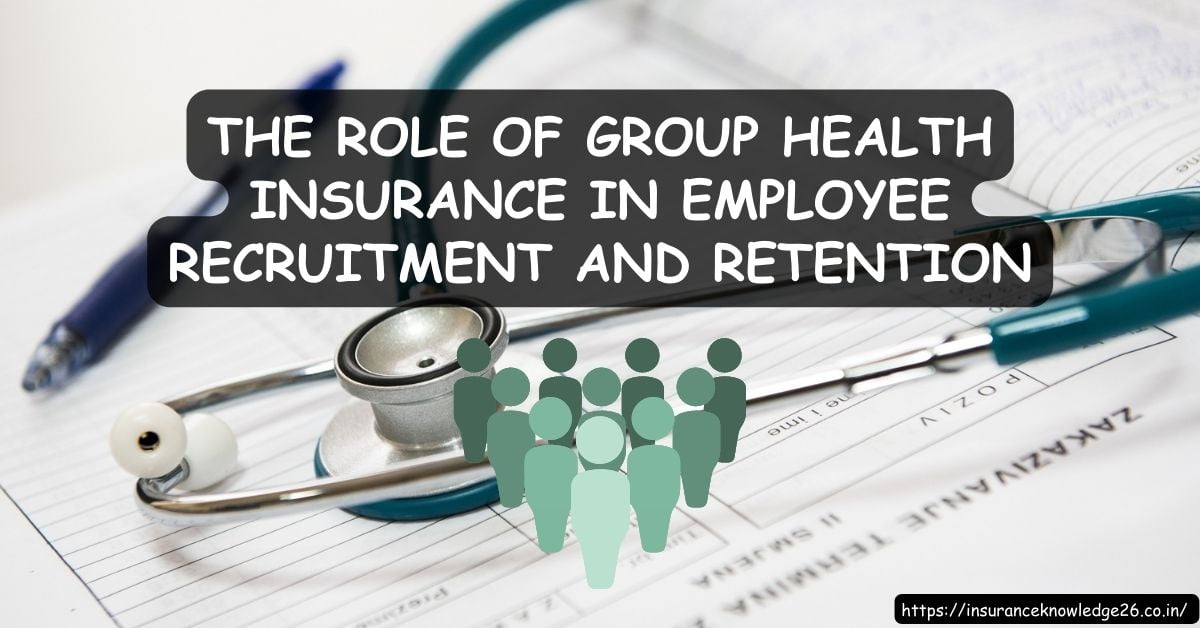Discover the pivotal role of group health insurance in attracting and retaining employees. Learn how offering comprehensive health coverage enhances recruitment efforts, boosts employee loyalty, and fosters a healthier, more productive workforce.

In today’s competitive job market, employee recruitment and retention have become paramount concerns for businesses. To address these challenges, companies are increasingly recognizing the pivotal role of group health insurance. Providing comprehensive health coverage not only attracts top-tier talent but also fosters a sense of loyalty among employees.
The Attraction of Comprehensive Health Coverage
In an era where employees seek more than just a paycheck, a robust benefits package can significantly sway job seekers’ decisions. Group health insurance emerges as a critical component of this package, acting as a strong attraction for potential candidates.
Showcasing Commitment to Employee Well-Being
Offering group health insurance sends a powerful message about a company’s commitment to the well-being of its workforce. It demonstrates that the organization values its employees’ health and is willing to invest in their overall quality of life. This commitment resonates with job seekers who are increasingly prioritizing work-life balance and holistic job satisfaction.
Gaining a Competitive Edge in Recruitment
In a tight labor market, businesses vie for the same talent pool. The inclusion of group health insurance in the benefits package can set an employer apart from its competitors. Job seekers are more likely to choose a company that not only offers competitive salaries but also prioritizes their health and security.

Nurturing Employee Loyalty through Health Coverage
While attracting talent is essential, retaining existing employees is equally crucial for organizational stability and growth. Group health insurance plays a pivotal role in fostering loyalty and reducing turnover rates.
Cultivating a Sense of Security
Healthcare expenses can be a significant source of stress for employees. Offering group health insurance alleviates this concern by providing a safety net against unexpected medical costs. This sense of financial security creates a positive work environment, contributing to employee satisfaction and loyalty.
Strengthening Employee-employer Relationships
When a company invests in its employees’ well-being, it fosters a sense of mutual respect and trust. Employees are more likely to feel valued and appreciated, which, in turn, strengthens their commitment to the organization. Group health insurance serves as a tangible expression of the company’s dedication to its workforce.

Enhancing Employee Productivity and Well-Being
Employee health directly impacts productivity and overall workplace dynamics. A healthier workforce is not only more engaged but also more efficient in their roles.
Reducing Absenteeism and Presenteeism
Comprehensive health coverage encourages employees to seek timely medical care, reducing the likelihood of prolonged illnesses. This, in turn, minimizes absenteeism and presenteeism—the phenomenon where employees show up for work despite being unwell. By addressing health concerns promptly, group health insurance contributes to a more productive work environment.
Promoting Preventive Care
Access to preventive services, such as regular check-ups and vaccinations, is a hallmark of group health insurance plans. By promoting proactive health management, these plans contribute to a healthier and more resilient workforce. Healthy employees are less likely to succumb to preventable illnesses, ensuring consistent productivity levels.
Addressing Potential Challenges of Group Health Insurance
While the benefits of group health insurance are evident, businesses must also navigate potential challenges associated with implementing and managing such plans.
Financial Considerations
Offering comprehensive health coverage comes with financial implications for businesses. Balancing the costs of providing insurance with the benefits it brings requires careful planning and evaluation. Employers need to assess their budgetary constraints while ensuring that the coverage offered aligns with employees’ needs.
Plan Customization
Different employees have diverse healthcare requirements. Creating a group health insurance plan that caters to various needs—ranging from young professionals to those nearing retirement—requires customization. Striking the right balance between a comprehensive package and individualized options is essential.
FAQs
Is group health insurance essential for small businesses?
Absolutely. Group health insurance can level the playing field for small businesses competing for talent and contribute to a more satisfied and loyal workforce.
How does group health insurance impact employee morale?
Group health insurance enhances employee morale by providing a safety net against medical expenses, showing the company’s commitment to well-being, and reducing financial stress.
Can group health insurance reduce turnover rates?
Yes, offering group health insurance can significantly reduce turnover rates by fostering loyalty through the provision of valuable benefits and a sense of security.
What are the key elements of a comprehensive health coverage plan?
A comprehensive health coverage plan typically includes medical, dental, and vision benefits, along with options for preventive care, prescription coverage, and mental health support.
How can companies overcome the financial challenges of offering group health insurance?
To address financial challenges, companies can explore cost-sharing models, negotiate with insurance providers, and consider incorporating wellness programs to reduce long-term healthcare expenses.
Group health insurance has evolved from being a mere perk to a strategic tool for attracting and retaining top talent. Its multifaceted benefits span from showcasing a company’s commitment to well-being to nurturing employee loyalty and enhancing overall workplace productivity. While challenges exist, the potential advantages of offering comprehensive health coverage far outweigh the drawbacks. By prioritizing the health and security of their workforce, businesses position themselves as employers of choice in a competitive job market.
THE ROLE OF GROUP HEALTH INSURANCE IN EMPLOYEE RECRUITMENT AND RETENTION | SMALL GROUP HEALTH INSURANCE | GROUP HEALTH INSURANCE | HEALTH INSURANCE

